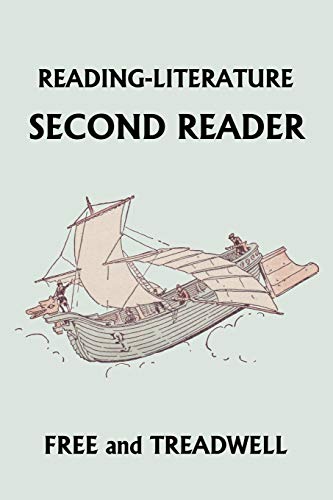Harriette Taylor Treadwell, Margaret Free
Reading-Literature, Second Reader, Adapted and Graded
About the Book
An almanac is an annual publication that lists a set of events in the following year, including such information as weather forecasts, farmers' planting dates, tide tables, and other data in tabular form. Celestial figures and a wide range of statistics are to be found in almanacs, including the rising and setting times of the Sun and Moon, dates of eclipses, hours of high and low tides, and dates of religious festivals. In the United States Benjamin Franklin began publishing Poor Richard's Almanack from 1733-1758, and Benjamin Banneker, a free African-American, published a number of almanacs from 1792 to 1797.
Also in this Book
A library catalog (catalogue) is a register of the bibliographic items found in a library or network of libraries that are spread over several locations. There are many other types of catalogs, including exhibition catalogs, music catalogs, database catalogs, font catalogs, stamp catalogs and auction catalogs.
And in this Book
An encyclopedia (encyclopaedia) is a reference book that provides brief summaries of general knowledge or of a specialized field or discipline. Encyclopedias are comprised of topics that are generally arranged alphabetically but sometimes thematically. The entries are longer and more detailed than in most dictionaries. While encyclopedias have existed for 2,000 years, Chambers' Cyclopaedia (1728), the Encyclopédie of Denis Diderot and Jean le Rond d'Alembert (1751 onwards), and the Encyclopædia Britannica were the first to be presented in a form that we would recognize today.
About us
Leopold Classic Library has the goal of making available to readers the classic books that have been out of print for decades. While these books may have occasional imperfections, we consider that only hand checking of every page ensures readable content without poor picture quality, blurred or missing text etc. That's why we:
- republish only hand checked books;
- that are high quality;
- enabling readers to see classic books in original formats; that
- are unlikely to have missing or blurred pages.
Happy reading!
- Weight
- 13.8 oz.
- Dimensions
- 6.1 x 0.5 in.
Enjoy reading Reading-Literature, Second Reader, Adapted and Graded? You may also like these books
-

Harriette Taylor Treadwell, Margaret Free, Frederick Richardson
READING-LITERATURE Second Reader
Paperback (Yesterday's Classics April 13, 2008) -
K

Harriette Taylor Treadwell, Margaret Free, Frederick Richardson
READING-LITERATURE First Reader
Paperback (Yesterday's Classics Feb. 28, 2007) -
R

Harriette Taylor Treadwell, Margaret Free, Frederick Richardson
Reading-Literature: The Primer
Paperback (Yesterday's Classics June 22, 2006) -

Harriette Taylor Treadwell, Margaret Free, Frederick Richardson
READING-LITERATURE Third Reader
Paperback (Yesterday's Classics April 27, 2008) -
T

Harriette Taylor Treadwell, Margaret Free, Frederick Richardson
The Primer
Paperback (Evertype May 1, 2009)
